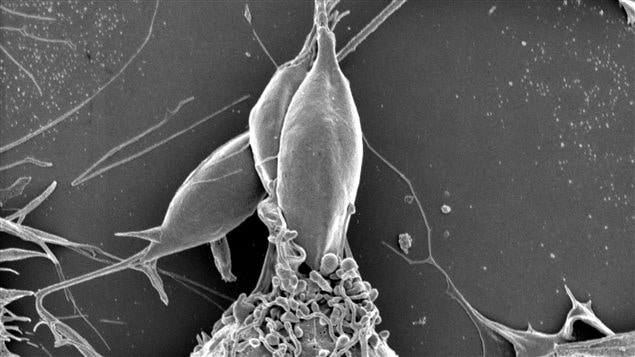Research lead by McGill University has found an important mechanism behind leishmaniasis, a sometimes deadly parasitic disease transmitted by sandflies. The researchers found that molecules known as exosomes boost the ability of the parasite to infect humans and other mammals. This discovery could eventually help in the development of a vaccine to protect against the disease.

One form is deadly
Over 12 million people around the world are affected by Leishmaniasis. The majority get a skin lesion which may or may not be painful and can leave a nasty scar. But others develop a form of the disease which can cause inflammation in the lymph nodes, the liver and the spleen with serious consequences.
“The form visceral leishmaniasis, if you’re not treated, you’re dead,” says Prof. Martin Olivier, lead research for the study and a professor of microbiology and immunology. “You need very strong therapy, I mean chemotherapy in order to get rid of the parasite once it’s inside your liver and your spleen.”
ListenDisease could spread with climate change
Between 100,000 and 300,000 people die from this form of the disease each year. The parasite is transmitted in the tropics, sub-tropics, parts of southern Europe and some Canadian soldiers were infected in Afghanistan and tourists in South America. As the climate changes, the disease could spread.
The discovery of the role of exosome in boosting the parasites’ ability to infect could lead to new vaccines that target exosomes not only in leishmania but in the parasites that cause other diseases like malaria and sleeping sickness.








For reasons beyond our control, and for an undetermined period of time, our comment section is now closed. However, our social networks remain open to your contributions.